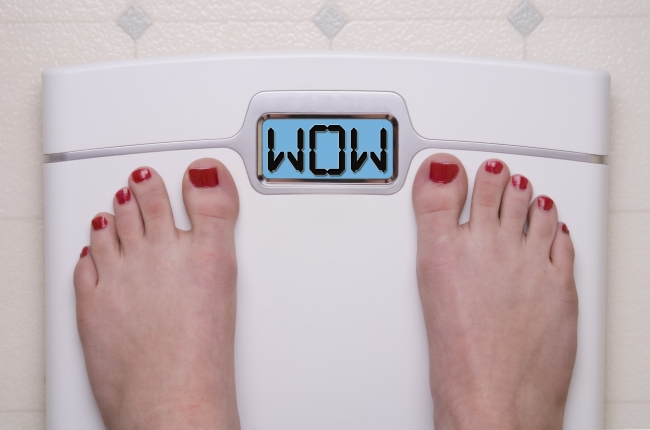 I hadn’t planned on writing a formal review of Gary Taubes’ latest book, Why We Get Fat, because I already wrote an extensive review of his first book, Good Calories, Bad Calories, and the messages (and my criticisms) are basically the same. But after finishing the book I think Taubes is worth revisiting.
I hadn’t planned on writing a formal review of Gary Taubes’ latest book, Why We Get Fat, because I already wrote an extensive review of his first book, Good Calories, Bad Calories, and the messages (and my criticisms) are basically the same. But after finishing the book I think Taubes is worth revisiting.
My biggest problem with Taubes’ first book is that it was very difficult to read, and that of course means most people won’t finish it. In Why We Get Fat Taubes repackages the data in a way that is much more logical and easy to digest. The book is substantially shorter, and is mostly free of the rants and tirades that peppered Good Calories, Bad Calories.
Instead, Why We Get Fat takes the reader through a clear and concise explanation of why all calories are not created equal, and that carbohydrates are the reason for the vast majority of the health and weight problems plaguing modern civilization. He also does a fantastic job demolishing the currently prevailing hypothesis that dietary fat and blood cholesterol are the causes of heart disease. They aren’t.
That so few people understand these points is why I recommend everyone read this book. It breaks my heart every time someone writes to me for nutrition advice and proudly points to their butter-less popcorn or baked chips as proof of their already “healthy” diet. Until it becomes common knowledge that fat is good for you and processed carbohydrates are the worst thing you can eat, I think this book is the best resource we have to explain it.
Still I do not agree 100% with Taubes’ conclusions. Though I do think the evidence is overwhelming that all calories are not created equal, I disagree that calories therefore do not matter and cannot be manipulated to help with weight loss. Taubes argues that how much we eat is dependent on our hormone levels (specifically insulin levels) that regulate energy balance, and that depending on this balance we naturally regulate our feeding and energy expenditure (exercise) so that we maintain our weight.
Taubes makes a compelling case that severe calorie restriction is counterproductive in weight management, and I agree. However there is some evidence that a small calorie deficit, on the order of 100-200 calories per day, is within the range of our natural homeostatic mechanisms and can be effective at controlling body weight.
In his book, Why We Eat More Than We Think (another must-read), Brian Wansink explores study after study where environmental cues are manipulated to get people to eat either significantly more, or significantly less than they believed. Importantly, the participants never reported any difference in satiation no matter how much they ate. Wansink argues that people can make small dietary changes resulting in a moderate 100-200 calorie per day deficit that does not affect hunger levels and can be used to effectively control weight.
Similarly, in The End of Overeating (here’s my review) Dr. David Kessler discusses how eating can become uncoupled from hunger when it is associated with external cues, making a strong case that some of us really do eat more than we need to. I think many of Kessler’s points about overeating are valid, particularly for emotional eaters. His argument is further strengthened by individual case studies of people who learn to eat less without experiencing sensations of starvation that are predicted by Taubes. One such example is Frank Bruni’s book Born Round (my review), in which he overcomes his weight struggles by moving to Italy and changing his relationship with food. Bruni is able to maintain his weight even after accepting the job of food critic at the New York Times.
These accounts conflict with Taubes’ argument that people overeat to satisfy a caloric deficit caused by a carbohydrate-induced faulty metabolism. Though there is good reason to believe Taubes’ metabolic hypothesis accounts for a large part of the health issues in today’s society, I think it is premature to conclude that this is the only force at work in why we get fat. Indeed, some research suggests learned feeding cues can directly impact insulin and metabolic pathways even in the absence of food. This data does not refute Taubes’ hypothesis, but rather makes it more complicated than he implies.
Even if we assume Taubes’ metabolic theory accounts for the majority of our health problems, insulin response (the ultimate cause of fat accumulation) should also be affected by eating rate and exercise, and vary among individuals. However Taubes handedly dismisses the possibility that any behavioral modification other than carbohydrate restriction can impact metabolic function because, he argues, we will modify our physical activity to adjust for any nutritional changes. His case is compelling, but not air tight, and my interpretation is that while carbohydrate consumption is clearly very important, there are likely other factors that may also be helpful in controlling metabolism and body weight.
In his book The 4-Hour Body (my review), Tim Ferriss describes how WordPress founder Matt Mullenweg lost 18 pounds by simply chewing each bite of food 20 times. Extra chewing or “masticating” was made popular as a weight loss technique in the late 1800s by Horace Fletcher and is explored in Gina Kolata’s book Rethinking Thin (not a particularly good read). Extended chewing and eating slowly are both effective at inducing weight loss, likely because they slow the glycemic response and almost always result in decreased meal size.
One of the most interesting points made in The 4-Hour Body was Ferriss’ personal glycemic response to a low-carbohydrate diet of just meat and vegetables. He claims that even with this meal he could easily spike his glucose to over 150 mg/dL (this is very high) by simply eating quickly, and that this effect could be controlled by slowing down and taking a full 30 minutes to finish a meal. Unfortunately I could not find a similar experiment in the scientific literature, but Ferriss’ observation suggests that behavioral modification can have a powerful impact on metabolic response independent of diet composition.
My final complaint about Why We Get Fat is that Taubes never considers that individual variation may preclude his theory from applying to everyone. He suggests that while some people are genetically blessed with a higher tolerance for carbohydrates, others will only thrive on an almost zero carbohydrate diet. Unfortunately this is the one part of the book he does not provide data to back up his assertions.
Though Taubes frequently argues the importance of paying attention to outliers, he never explores the possibility that some individuals may actually do better (rather than less bad) on a diet with slightly more carbohydrates. (Let’s assume for now that I mean slowly digesting, natural carbohydrates and not highly processed sugars and grains.) In a healthy person there is no reason to assume that such a diet would induce insulin resistance, and there may be some additional advantage outside of metabolic health for including such foods. I don’t think this is a possibility we should dismiss without solid evidence.
To summarize, Taubes does an excellent job describing the importance of carbohydrates in both weight management and health but oversimplifies the science, particularly neglecting the importance of behavioral factors on metabolism. However, the analysis presented in Why We Get Fat is still the most clear explanation of the relationship between metabolism and health that I’ve found and is an invaluable resource for the general public.
What did you think of Taubes’ latest book?





 Health
Health Habits
Habits Food
Food Weight
Weight 



 Better Than Butternut: Roasted Delicata Squash Recipe
Better Than Butternut: Roasted Delicata Squash Recipe 10 Simple Ways To Eat Less Without Noticing
10 Simple Ways To Eat Less Without Noticing Juicing: Stupid and Pretentious or Nourishing and Enlightening?
Juicing: Stupid and Pretentious or Nourishing and Enlightening? 10 Tasty Carbs That Won’t Make You Fat
10 Tasty Carbs That Won’t Make You Fat How To Start Working Out When You Don’t Like To Exercise
How To Start Working Out When You Don’t Like To Exercise
 Focus More on Your Brain and Less on Your Diet if You’re Serious About Losing Weight
Focus More on Your Brain and Less on Your Diet if You’re Serious About Losing Weight Home Court Habits: The Secret to Effortless Weight Control
Home Court Habits: The Secret to Effortless Weight Control 10 Reasons You Aren’t Losing Weight When You Think You’re Doing Everything Right
10 Reasons You Aren’t Losing Weight When You Think You’re Doing Everything Right How To Burn More Calories Without Breaking A Sweat
How To Burn More Calories Without Breaking A Sweat The 7 Habits of Highly Effective Foodists
The 7 Habits of Highly Effective Foodists












